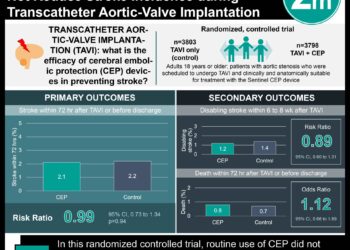Postoperative COX-2 Selective NSAIDs associated with anastomotic leakage following colorectal resection
Image: PD
Key study points:
1. Postoperative COX-2 selective NSAID use for analgesia was associated with increased rates of anastomotic leakage requiring reoperation following colorectal resection (12.8% vs 5.7%).
2. There was no significant change in 30-day mortality found with NSAID use following colorectal resection.
Primer: Anastomotic leakage after colorectal resection is a crucial issue within the surgical community. Leakage rates of 3% and 10% for colonic and rectal resections, respectively, result in mortality rates of up to 32% from this very common surgical procedure, indicated for everything from Chron’s and Ulcerative Colitis to cancer. Retrospective studies have shown a possible correlation between postoperative non-steroidal anti-inflammatory drug use and increased rates of anastomosis breakdown. Because of this, there has been increasing interest within the field to investigate the link between NSAID use and post-operative anastomotic leakage following bowel resection.
Background reading:
- Holte K, Andersen J, Jakobsen DH, Kehlet H. Cyclo-oxygenase 2 inhibitors and the risk of anastomotic leakage after fast-track colonic surgery. Br J Surg 2009;96:650-4.
- Klein M, Andersen LP, Harvald T, Rosenberg J, Gogenur I. Increased risk of anastomotic leakage with diclofenac treatment after laparoscopic colorectal surgery. Dig Surg 2009;26:27-30.
- Gorissen KJ, Benning D, Berghmans T, Snoeijs MG, Sosef MN, Hulsewe KW, et al. Risk of anastomotic leakage with non-steroidal anti-inflammatory drugs in colorectal surgery, Br J Surg 2012;99:721-7.
This [prospective cohort] study looked at data gathered by the Danish Colorectal Cancer Group including 2766 participants undergoing elective operation for colorectal cancer or rectal resection with primary anastomosis between 2006-2009. 32% of the study participants received post-operative NSAIDs (diclofenac and ibuprofen). This was associated with a significant increase in anastomotic leakage verified by reoperation (12.8% with diclofenac and 8.2 with ibuprofen compared to 5.7 without treatment). However, in multivariable regression analysis only diclofenac was identified as an independent risk factor for anastamotic breakdown, along with male sex, rectal anastomosis, and blood transfusion. 30 mortality was no significantly different between the groups.
In sum: NSAIDs are frequently used in the post-operative setting both as recommended for post-operative analgesia. This large prospective study was culled from a large national database, and is especially robust in that anastomic leakage was defined as clinically significant leakages requiring surgical intervention and were all verified intraoperatively. The authors have found that use of a COX-2 selective NSAID diclofenac is associated with an increased risk for anastomotic breakdown following colorectal resection which is significant given its wide-spread use for pain control. There was no independently increased risk of leakage with COX-1 selective NSAID ibuprofen. The mechanism for which NSAIDs influence anastomotic integrity have yet to be elucidated, however, experimental studies have investigated its effects on collagen production and cross-linking. COX-2 selective NSAIDs have also been implicated in increased microthrombosis/emboli formation, and such a phenomenon occurring at the site of anastomosis could also lead to breakdown. Thus, practioners should exercise caution when considering the use of COX-2 selective NSAIDs for analgesia following colorectal resection surgery.
Click to read the study in BMJ
By AH
© 2012 2minutemedicine.com. All rights reserved. No works may be reproduced without written consent from 2minutemedicine.com. DISCALIMER: Posts are not medical advice and are not intended as such. Please see a healthcare professional if you seek medical advice.




